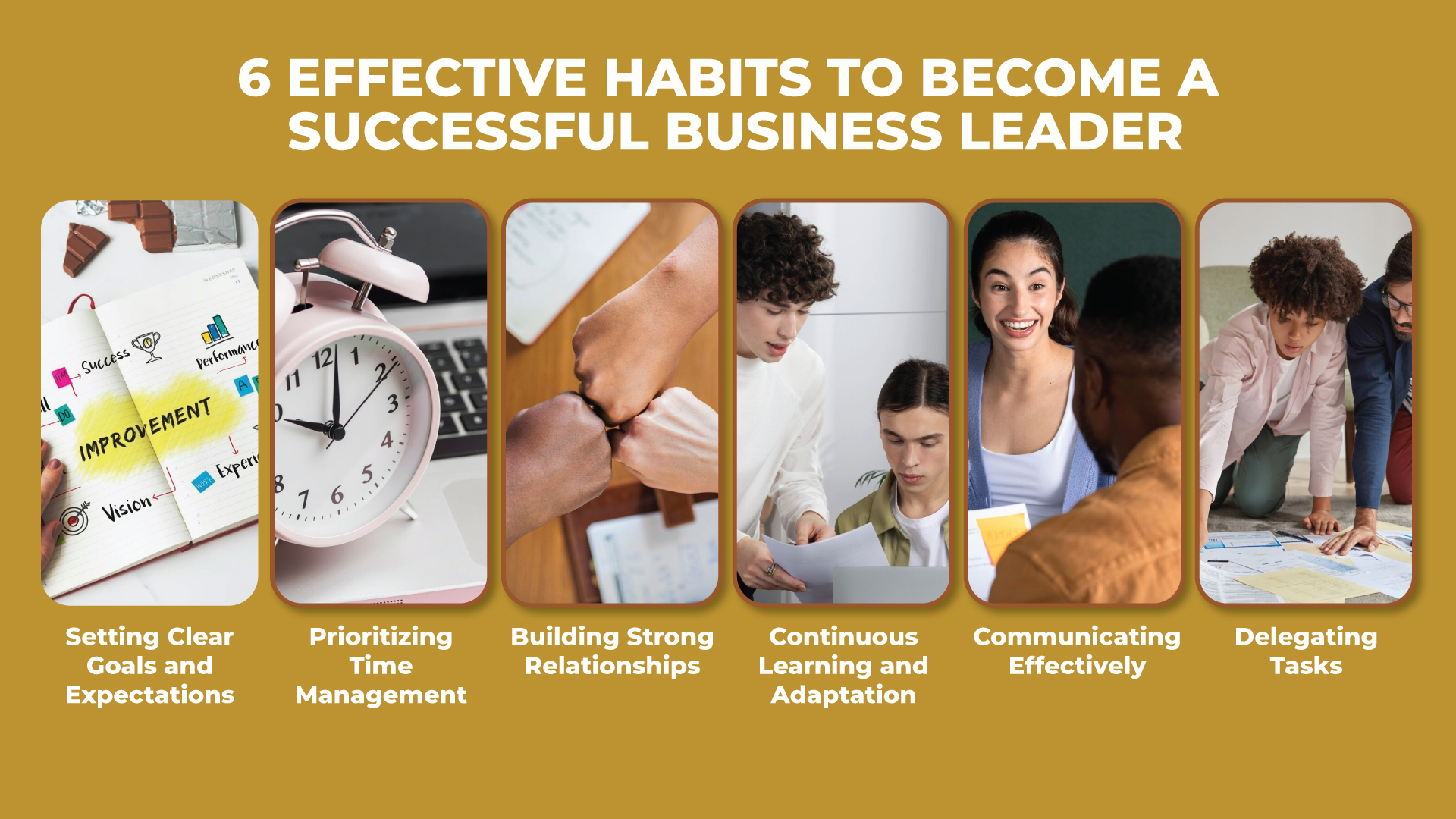6 Effective Habits of Successful Business Leaders

Every successful business is guided by a leader whose actions and decisions shape the trajectory of the organization. Whether they lead a big or small business, they represent the vision, drive, and resilience necessary to achieve tangible results.

"Leaders aren't born, they are made."
– Vince Lombardi, American football coach and executive, NFL
To be truly successful, however, CEOs or business leaders must cultivate healthy habits that enhance their effectiveness. By integrating healthy habits such as strategic thinking, empathetic communication, and adaptability into their daily routines, they set the stage for sustained success and sustainable growth. With the long list of habits one must attain, we narrowed down 6 effective habits to become a successful business leader.

Setting Clear Goals and Expectations
Successful CEOs are adept at defining clear objectives for themselves and their organizations. They set ambitious yet achievable goals, ensuring alignment with the company's vision. By communicating these goals to their teams, CEOs create a sense of purpose and direction.
Prioritizing Time Management
CEOs of large or small businesses must prioritize time management to enhance productivity and fulfill goals. As they manage their time well, they can prioritize high-impact tasks, make educated decisions, and stay focused. Small business executives, who have fewer resources and time, must master time management to develop and innovate.
Building Strong Relationships
Effective CEOs invest time in building relationships with stakeholders, including employees, customers, investors, and partners. They actively listen, empathize, and collaborate. These strong connections foster trust, loyalty, and long-term success.
Continuous Learning and Adaptation
Today's dynamic business environment demands business leaders to learn and adapt constantly. Staying on top of industry trends, new technology, and market shift is essential for making informed decisions and being ahead of the competition.
The capacity to quickly adjust to changes in the corporate world is also equally important. Adaptable leaders can modify their business plans and methods to remain on par and resilient.
Communicating Effectively
Clear communication is crucial. Effective business leaders must articulate their vision, provide regular updates, and actively engage with their teams, may it be in-person or remotely, to ensure everyone is aligned with the company's goals. Whether through town halls, emails, or one-on-one conversations, effective communication fosters alignment and transparency.
Delegating Tasks

Originally published at https://www.iswerk.ph on July 16, 2024.
https://www.iswerk.ph/6-effective-habits-of-successful-business-leaders/